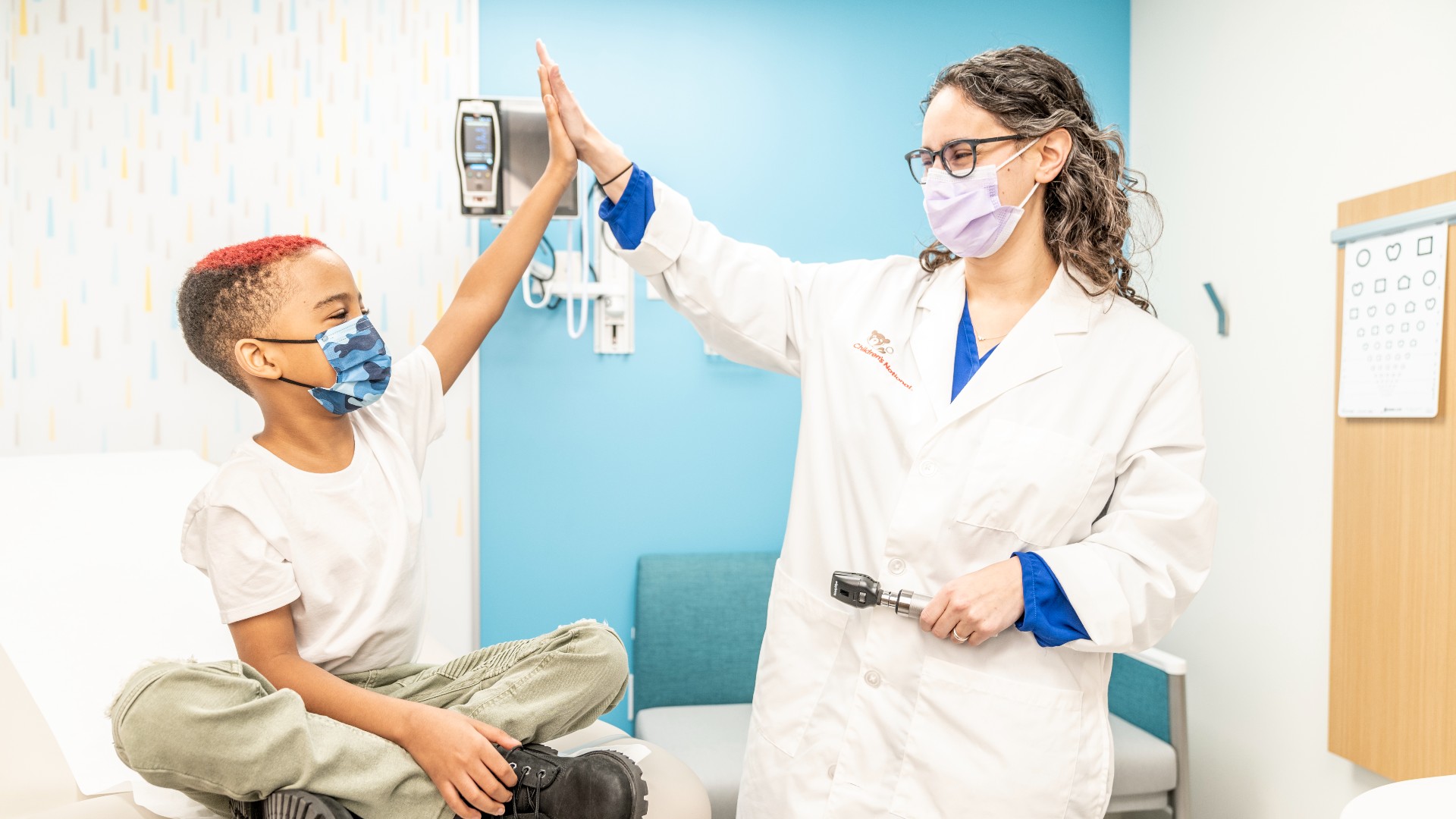Each year, over 80 newly diagnosed infants with sickle cell disease are seen in our comprehensive Infant Sickle Cell Program. Our Infant Sickle Cell Program team of hematologists, nurse practitioners, social workers and nurse coordinators provides education about the diagnosis, supportive care and treatment options to families.
Contact Information
For appointments, please call 1-888-884-BEAR (2327) and for information, call 202-476-2140.
Infant Sickle Cell Disease Program: Your Visit
A visit to our Infant Sickle Cell Disease Program begins with consultation and education about sickle cell disease and common complications of the disease in young children. Discussion topics include:
- Overview of sickle cell disease
- Genetics of sickle cell disease
- How to prevent and manage common complications of sickle cell disease
- What to expect in the emergency department
- How to interact with children to help them succeed
- Hydroxyurea use
- Preimplantation genetic diagnosis
- Bone marrow transplantation
- Research
Children’s National’s experts are constantly working toward better outcomes for sickle cell disease patients and families. Researchers participated in the Baby HUG study which examined risks and benefits of treating young children (9-18 months of age) with hydroxyurea, a medicine used to ease the complications of sickle cell disease. Follow-up Baby HUG studies are continuing to study these children to determine how hydroxyurea affects them. They are also working to understand more about the individual response to pain in order to create individualized pain plans for sickle cell patients and are studying bone marrow transplantation for children who don’t have a sibling match for transplant as well as ways to identify sickle cell infants who are the highest risks for complications later in life.





